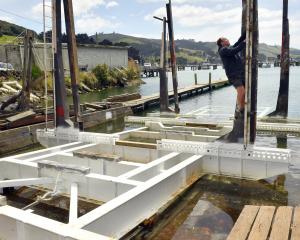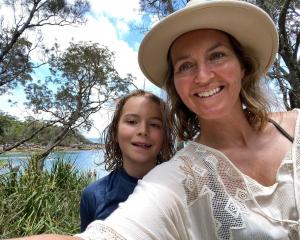
Under the proposal preferred by councillors yesterday, Dunedin’s six councillors would decrease to five and the Dunstan constituency would increase from three councillors to four.
The council is conducting its first representation review in six years and this winter public consultation is planned to reflect the large population growth in Queenstown and Wānaka.
Councillors steered away from proposals to create a new constituency in the Wakatipu or Upper Lakes areas.
Chairwoman Cr Gretchen Robertson said the Dunstan ward was one of the fastest-growing areas of New Zealand, but it also had vast rural landscapes and "some really extensive farming".
"In terms of the risks of not getting representation in Queenstown and Wānaka, actually there would be a far greater risk of not getting representation in that rural part of the Dunstan constituency," Cr Robertson said.
"ORC has got quite a presence inland for a whole range of reasons: from that more farming-focused rural area, a lot of profile there, through to PT [public transport] and hazards, urban development ... and large environmental projects.
"Basically, we do need to recognise the growth inland and that Dunedin isn’t growing at the same rate — and we need to adjust as a council and represent our communities fairly across the region."
In March, councillors heard that since the council’s last representation review, in 2018, the Dunstan constituency (made up of the Central Otago and Queenstown Lakes district areas) had grown from 57,400 people to an estimated 78,800, far exceeding the growth in other areas.
Over the same six-year span, the Dunedin constituency (central Dunedin and the city’s Waikouaiti Coast, West Harbour, Otago Peninsula and Saddle Hill community board areas) had only grown from 110,800 to 115,200 people.
At the March workshop, councillors indicated they considered the present number of councillors, 12, was appropriate, but that growth in inland Otago, including Cromwell, Luggate, Hāwea and Makarora should be addressed.
One issue for the review to consider was which constituency the town of Mosgiel belonged to.
Mosgiel has been historically aligned with the Molyneux constituency to make the constituency viable.
Cr Robertson agreed with others that "Mosgiel is a bit of an anomaly", which could go either way — to Dunedin as a connected community, or the Taieri, its catchment.
"There’s arguments both ways."
Cr Alan Somerville said there would be advantages and disadvantages in whatever proposal the council put forward.
But he believed the option councillors approved was "workable — and the best one that we have to work with now".
Cr Alexa Forbes, who along with Cr Bryan Scott was one of only two councillors to vote against the preferred option, said the council was not being "future-focused".
"I do think that we aren’t fully recognising the real burgeoning urban centre we have happening at Head of the Lakes."
The results of the review would only be in place for six years and so the missed opportunity was not "disastrous", Cr Forbes said.
Nonetheless, she would be very interested to see the feedback from the community.
In June, councillors will be presented with a developed proposal to be approved for public consultation.
If there are submissions, a hearings process will follow.












